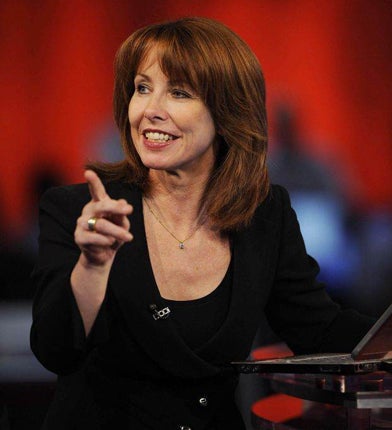Thompson engulfed by BSkyB letter row

The BBC director-general, Mark Thompson, was summoned before the corporation's governing body to answer fears that he allowed himself to become caught up in a political row over the future of BSkyB.
The BBC Trust challenged him over why he did not seek its permission before signing a letter to Vince Cable calling for News Corporation's bid for outright control of BSkyB to be referred to Ofcom.
The Liberal Democrat Business Secretary stepped in yesterday and asked the media watchdog to examine whether the £12bn bid from Rupert Murdoch's company would threaten media diversity. Ofcom will report by the end of the year.
The issue has divided the coalition partners, with Conservative ministers adopting a more relaxed attitude to the bid. Senior peers – including the former BBC director-general Lord Birt – lined up in the Lords last night to welcome Mr Cable's move.
The Independent understands that Mr Thompson's initiative has incensed senior figures in the Trust. They have demanded an explanation and are concerned that the move has pitched the corporation into an unnecessary political row.
Some members feared Mr Thompson had signed the letter as part of his ongoing public dispute with James Murdoch, the chairman of Sky.
Last year, Mr Murdoch used a speech at the Edinburgh International Television Festival to describe the scope of the BBC's activities and ambitions as "chilling".
This year, Mr Thompson stood on the same stage to deliver a riposte suggesting that the Murdochs were attacking the concept of public-service broadcasting because they feared it would threaten their own business interests.
Last night, neither the BBC Trust nor Mr Thompson was prepared to talk about the Trust meeting, but confirmed that it had taken place. But sources close to the Trust made clear that Mr Thompson's position still did not reflect their views.
In the Lords last night, the Channel 4 deputy chairman, Lord Puttnam, warned that the purchase of the remaining shares would give News Corp "an unprecedented level of control over the UK media".
This would, he said, be "extremely damaging, not only to media plurality but also to informed democratic debate" and warned of "the chilling prospect of a disparity of scale in which all competition, not just the BBC, is frozen to death".
His warnings were echoed by Lord Birt, the former Tory cabinet minister Lord Fowler, and two former Guardian Media Group chairmen, Labour peers Lord Myners and Lord Gavron.
The Government yesterday stressed that Mr Cable was acting in a quasi-judicial capacity by referring the bid to Ofcom, and the issue was not discussed by the Cabinet.
But there is no disguising that the Tory and Liberal Democrat members of the Cabinet have very different attitudes to the proposed takeover. Both Mr Cable and his party's leader, Nick Clegg, believe the deal should be subject to a public-interest test.
Tory Cabinet ministers – including Jeremy Hunt, the Culture Secretary, and George Osborne, the Chancellor – are less concerned about the planned deal.
One source said: "The two parties have approached this from very different angles."
'We are already past a Berlusconi moment'
Does this matter? Doesn't Rupert Murdoch own BSkyB already?
The media mogul's News Corporation empire is BSkyB's largest shareholder and he is himself a former chairman. But News Corp only has a minority stake of 39.1 per cent, restricting its ability to operate in partnership with other News Corp organisations
What are other media organisations so worried about?
They say News Corp is already too powerful, owning four national newspapers (The Times, The Sunday Times, The Sun, the News of the World), and being the biggest shareholder in Britain's largest broadcasting organisation by turnover.
Who is saying this?
The companies that own the Daily Mail, the Daily Telegraph, The Guardian and the Daily Mirror, together with the chief executives of BT and Channel 4 and the director-general of the BBC Mark Thompson sent a joint letter last month to Business Secretary Vince Cable, imploring him to refer the buyout to the competition authorities, arguing that a Murdoch multimedia empire would have a turnover of £7.5billion, dwarfing the BBC's £4.8 billion income.
How damaging is this to media plurality in Britain?
News Corp might point to a Competition Commission into BSkyB's 2006 purchase of ITV shares, which did not find against it on plurality grounds (though BSkyB was ordered to reduce its shareholding). Media analyst Claire Enders might beg to differ. In reference to the media ownership of Italian Prime Minister Silvio Berlusconi, she told The Guardian: "The level of concentration [of News Corp media] already seen in the UK is substantially greater than would be allowed in Italian law. We are already way past any Berlusconi moment in Britain."
So what happens now?
The European Commission yesterday began a 25 day period of examining whether there is a need for a competition inquiry into the deal. With Mr Cable having yesterday referred the matter to Ofcom. The media regulator has until the end of the year to report back to him. He will then decide whether to order a full inquiry by the UK's Competition Commission.
Subscribe to Independent Premium to bookmark this article
Want to bookmark your favourite articles and stories to read or reference later? Start your Independent Premium subscription today.

Join our commenting forum
Join thought-provoking conversations, follow other Independent readers and see their replies